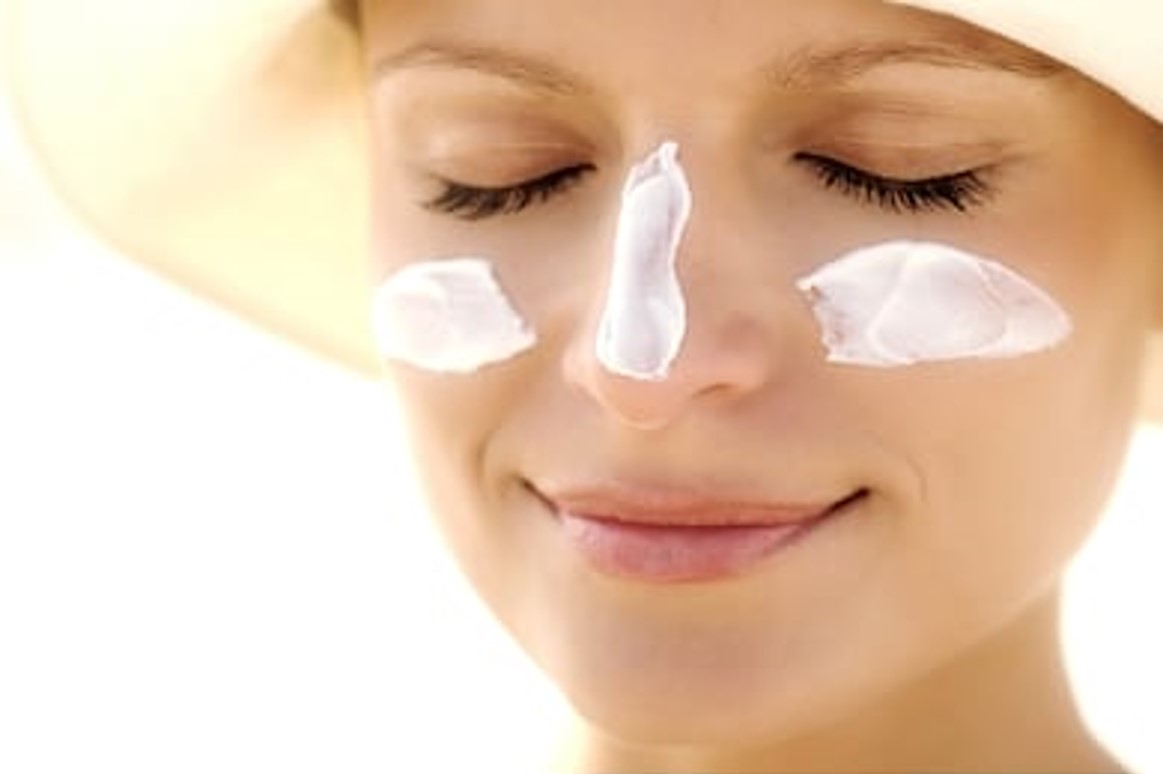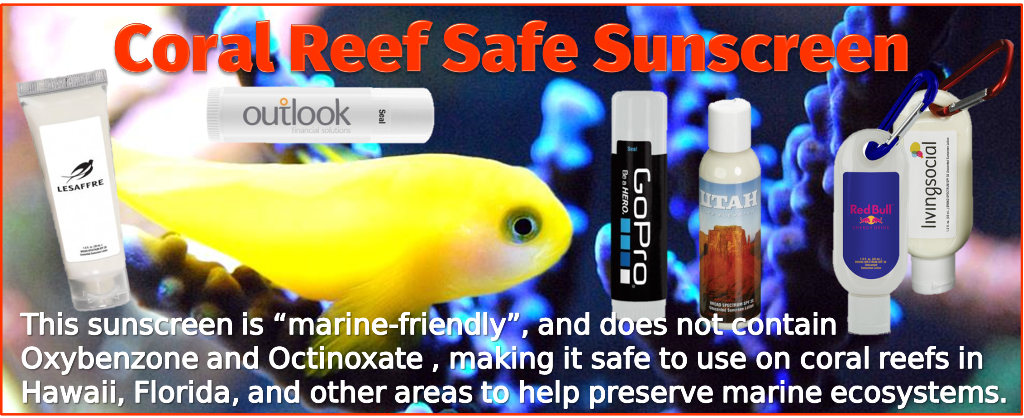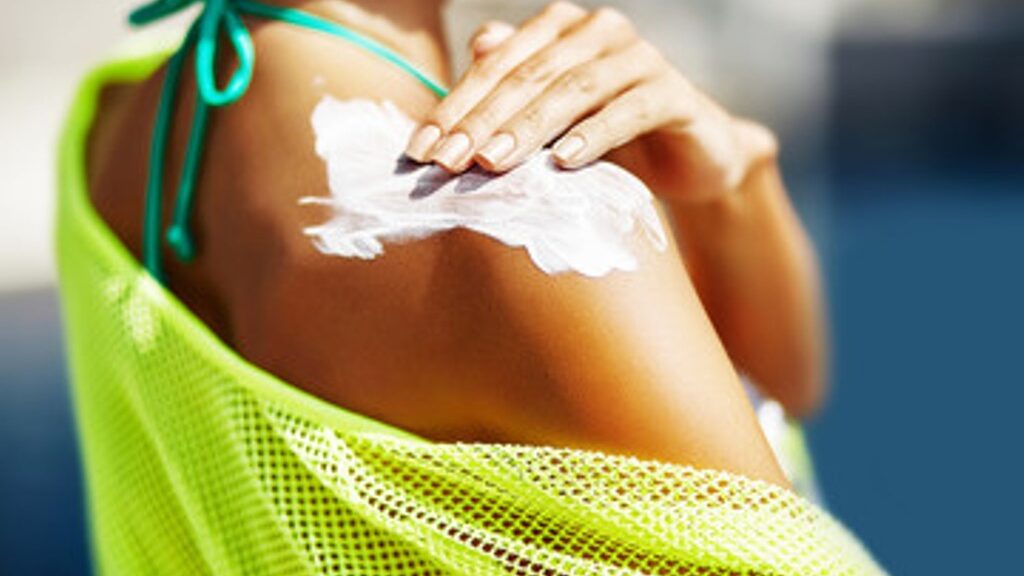Why you need It, How it works, and How much to use
Using sunscreen can be a hassle, especially if you’re just running a quick errand. But is it really necessary? Most people would agree it is. Even the shortest amount of time in the sun can expose you to the possibility of getting burned when you don’t use sunscreen, even if it’s only your arm getting sun through a car window. We’ve all had a “driving tan” at one time or another!
You may not even realize you are getting burned if clouds or wind make it seem cooler than it actually is. I have often heard you are more likely to get sunburned when the sky is overcast because you don’t feel the burn until it’s too late. And the longer you stay in the sun unprotected, the greater the risk.

The greatest danger of not using sunscreen is one that won’t show any effects until years later – melanoma – a type of skin cancer that kills more than 20,000 people each year, with numbers steadily growing. They say people with blue/green eyes, fair skin, and blond or red hair are among the greatest at risk for melanoma because they have less melanin than those with darker skin. For some people, a sunburn is a precursor to a tan, while others never burn at all. That doesn’t mean you don’t need sunscreen.
In addition to the danger of skin cancer, sunburns can be extremely painful and even cause agonizing blisters. They can take days to heal, preventing you from touching the burned area without causing pain. And no matter how much you moisturize, it usually leads to peeling skin, which is not an attractive look. So yes, sunscreen is an important part of your daily health, and is necessary to protect your skin and prevent skin cancer.
Wearing sunscreen can be inconvenient. You’re late for work or an appointment and trying to get out of the house as quickly as possible, so you try to eliminate non-essential steps from your daily routine. But do you want to skip applying your sunscreen? Before you say yes, think about the reasons wearing sunscreen IS essential.

Top 5 Benefits of Using Sunscreen
1. Prevents Painful Sunburns
The most obvious benefit of sunscreen, is of course, to prevent a sunburn. And the best way to prevent a sunburn, aside from not going outside, is with the use of a daily sunscreen. It’s so easy to get burned, yet so simple to prevent!
And don’t forget that it doesn’t have to be sunny for you to get sunburned – some of the worst burns are acquired on a cloudy day! Just because you can’t see the sun, doesn’t mean that it’s rays can’t reach your skin.
The sun isn’t the only culprit either – tanning beds can cause extremely painful burns too if used without proper preparation. It’s easy to fall asleep in a tanning bed, so it’s important that you always use sunscreen before getting into one. It might take a little longer to achieve your desired tan level, but it’s much safer and will provide you with a better looking, more even tan in the long run.
2. Reduces Appearance of Age/Sunspots
Sunscreen protects your skin from the harmful rays of the sun that cause browns spots commonly called “age” or “liver” spots. You might think you don’t need to worry about this if you won’t be out in the sun very often, but even the smallest amount of exposure can do damage you won’t notice until it’s too late. Caused by hyperpigmentation, sunspots can occur anywhere on your body where skin is exposed and left unprotected. So always be sure to cover your face, shoulders, arms, and back, as well as the back of your hands. Your future skin will thank you!
3. Reduces Signs of Aging for Clearer, Younger Looking Skin
Your current skin will thank you! Using sunscreen daily can delay the appearance of wrinkled skin and premature aging. It protects the collagen and connective tissues, giving your skin more elasticity, thereby reducing wrinkles. Additionally, sunscreen helps reduce and prevent the redness and blotchiness that often occurs on the face, and gives your skin a generally clearer and more even complexion. We all want to look and feel younger, and using sunscreen to keep skin protected is one of the best ways to have younger, clearer skin.
And don’t wait until you are older to start using sunscreen! It’s very important that you ensure your children are well protected too! While the effects may not show up until you are older, it all starts the first time you step out into the sun.
4. Medications
Many medications can cause sun sensitivity and increase your chance of sunburn. If the label on your medication says to limit your exposure to the sun, this is why. This list includes antibiotics, cardiac drugs, diuretics, NSAIDs, and even some acne medications. So be heedful of your prescription labels! If they warn you against long sun exposure, be sure to use plenty of sunscreen if you must be in the sun.
5. Reduces the Risk of Skin Cancer
And most importantly, using sunscreen helps prevent cancer. Skin cancer (melanoma) rates are rising daily. The use of sunscreen offers protection and reduces the chances of getting skin cancer greatly. The CDC recommends using a broad-spectrum sunscreen containing at least SPF 15. However, the higher the number the better the protection. Using a sunscreen containing SPF 50 is the best way to help prevent skin cancer (barring not being in the sun at all).
So, before you head out for the day, remember to show your skin some love by applying your sunscreen! You and your skin will be grateful in the long run!
How Sunscreen Works
We know sunscreen plays an important role in our daily lives, protecting our skin from sun damage including premature aging and cancer, but how exactly does it work? While the sun is the sustaining force we need to live, the UV rays can be harmful to our skin, causing age spots, cancer, and other unwanted effects. There are essentially two kinds of rays we want to avoid: UVA and UVB. UVA rays penetrate deep into the skin, leading to premature skin aging and possible skin cancer, while UVB rays cause your skin to burn and/or tan. Sunscreen absorbs, reflects, and/or scatters ultraviolet light, helping to reduce the amount of UVA/UVB rays reaching our skin.
Sunscreen is made from both organic and inorganic chemicals. It filters light from the sun to help keep it from reaching the deep layers of our skin. While some of the light might get through, much as a screen does on a window, not nearly as much light gets through. If you are using sunscreen, it helps to protect the skin and lowers the chances of sunburn, age spots, and eventually skin cancer. Sunblock, on the other hand, prevents these rays from reaching the skin at all by reflecting the light away from the skin.
Typical ingredients include titanium oxide, or zinc oxide which is used in sunblock (we all remember the white noses of our youth)! These ingredients work by reflecting or scattering UV rays away from your skin. Organic ingredients such as oxybenzone absorb UV radiation, allowing the various modules of the sunscreen to break down and release heat. If you are concerned about using any kind of chemical on your skin, zinc oxide is your best bet. Zinc oxide is a natural mineral and provides not only the safest and most effective protection for your skin but is also coral reef safe. This means it won’t harm marine life or coral while blocking out both UVA and UVB rays.
Shop Coral Reef Safe Sunscreen

How Much SPF do you Really Need?
There’s a lot of debate about how much sunscreen you actually need to use, and what SPF level gives you the most protection. It can be very confusing since SPF levels range from as low as SPF 4, to as high as SPF 110. But do you really need that much? It would stand to reason that if SPF 30 is good, SPF 110 would be great, right?
Research studies say No. While theoretically (in the lab) the higher the number the better the protection, in reality, it doesn’t work that way. Sunscreen with SPF over 50 gives people a false sense of security, believing they can skip reapplications and stay out in the sun much longer without a break. Additionally, the FDA warns higher SPF levels are basically ineffective and can contain ingredients that cause skin irritation. Most recommend the use of a water-resistant, broad-spectrum sunscreen with an SPF of 30 to 50 for any outdoor activity. And for it to be effective, must be reapplied every two hours (at least), and immediately after swimming or sweating. SPF 15 is typically used on the face for daily activities like driving.
The amount is important too. It typically takes two tablespoons (1 oz.) to cover an average size body, less for children. The main thing to remember is to use enough to generously cover all exposed parts of your body, and to reapply often, especially if you are swimming or on the water. For added protection consider a hat and pair of sunglasses to protect your face and eyes.
And don’t forget to reapply! Wearing sunscreen is great, but if you don’t reapply it throughout the day, it won’t work as intended. The general rules for reapplying are as follows:
-
- After every 2 hours you are outside or exposed to the sun, including driving
- Every 80 minutes while swimming
- After sweating, or showering
- After toweling off
So, the bottom line is, you probably don’t need anything above SPF 50. The bigger the number isn’t as important as how often you reapply. So go out and enjoy the sun! After applying your sunscreen. And don’t forget to keep a bottle on hand for quick and easy reapplications throughout the day when needed.








